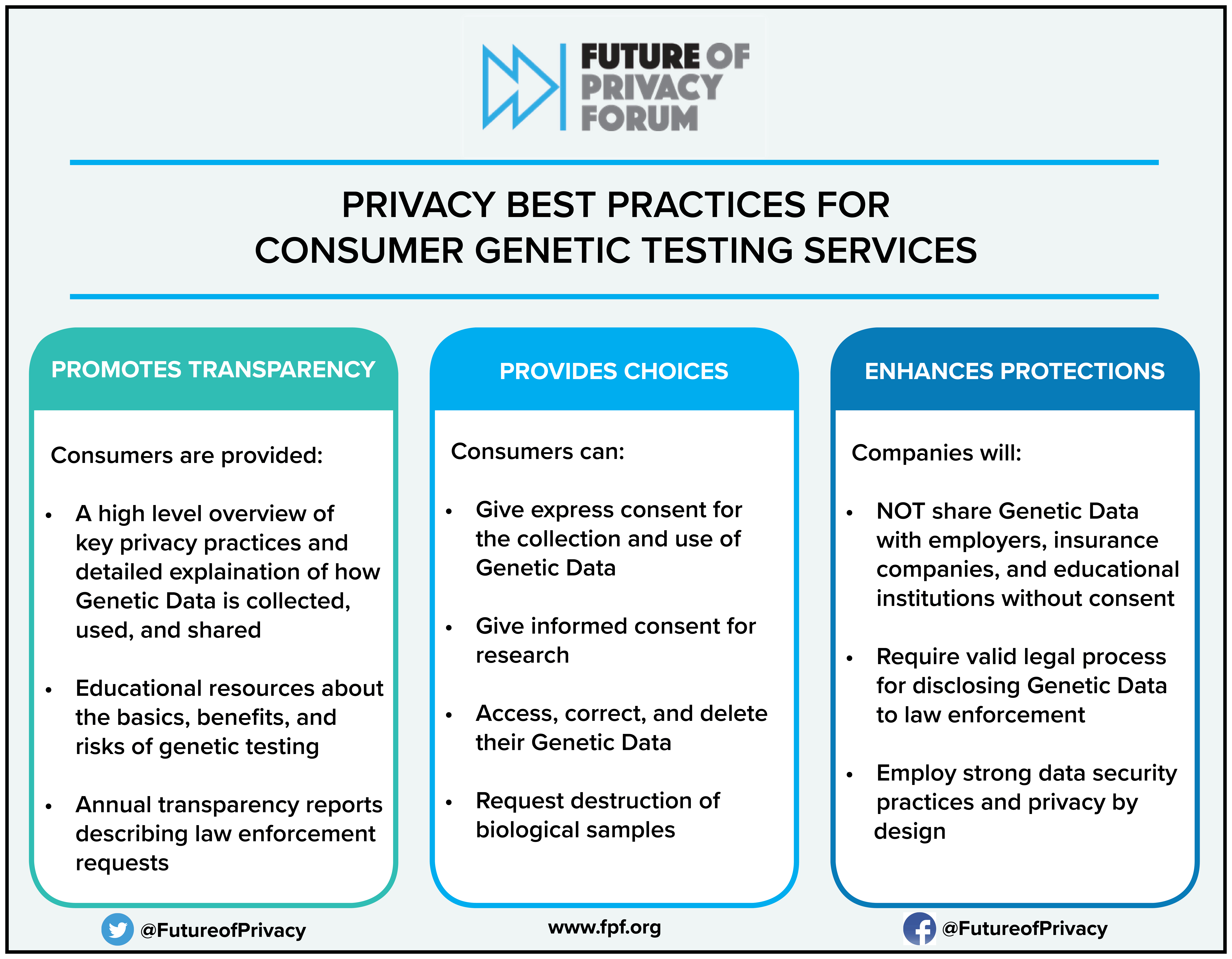Guest Post By: Carson Martinez, Future of Privacy Forum
Consumers’ interest in accessing their genetic information has boomed, as companies bring increasingly affordable consumer genetic and personal genomic testing services to market. With more testing services available than ever before, it is estimated that more than 12 million consumers have signed up in recent years to explore the insights that can be drawn from their genes.

With many of these genetic testing services, individuals can share their genetic data with academic researchers or pharmaceutical researchers, and after reviewing an informed consent notice on potential risks, many choose to participate. By providing the research community the ability to analyze significantly larger and more diverse range of genetic data, individuals have helped researchers discover important breakthroughs in biomedical research, healthcare, and personalized medicine.
If consumers are to safely share this information, the sensitive details revealed by genetic data need to be safeguarded by companies. Genetic data is one of the most intimate types of information, as it may be used to identify predispositions and potential risk for future medical conditions, and may reveal information about and even implicate an individual’s family members, including future generations. And as we have seen in recent cases like the Golden State Killer, it also can be used as a powerful investigative tool by law enforcement.
Although laws such as the Genetic Information Nondiscrimination Act of 2008 protect against discriminatory uses of genetic data by employers and health insurers, consumers also need to be certain that companies will respect the privacy of their genetic data and give them strong controls over how it is used and shared.
With this in mind, I and other speakers will be discussing the privacy of personal genetic information at the ASHG 2018 Policy Luncheon, taking place Thursday, October 18.
As a think tank focused on helping chief privacy officers navigate privacy challenges and incorporate ethical data practices, the Future of Privacy Forum (FPF) believes that emerging technologies like consumer genetic tests are valuable, but that protecting individual privacy is core to the success of any industry. In this nascent industry, there is a need for strong guidelines.
To that end, FPF together with 23andMe, Ancestry, Helix and other leading consumer genetic testing companies released Privacy Best Practices for Consumer Genetic Testing Services this summer to develop a policy framework for the collection, use, and sharing of consumer genetic data.

Incorporating input from a wide range of stakeholders including the Federal Trade Commission, genetics experts, and privacy and consumer advocates, the document:
- sets forward consumer rights to access and delete their genetic data;
- requires informed consent for sharing genetic data for research;
- bans the sharing of genetic data with third parties (such as employers, insurance companies, and educational institutions) without express consent;
- requires valid legal process for disclosing genetic data to law enforcement; and
- requires notice and consent for material changes to the policy and transfer of ownership, among others.
The Best Practices is supported by: Ancestry, 23andMe, Helix, MyHeritage, Habit, African Ancestry, FamilyTreeDNA, and Living DNA.
Carson Martinez is a Health Policy Fellow at the Future of Privacy Forum and leads FPF’s Health Privacy Project. To learn more about the Best Practices, attend the Policy Luncheon at the ASHG 2018 Annual Meeting in San Diego.
